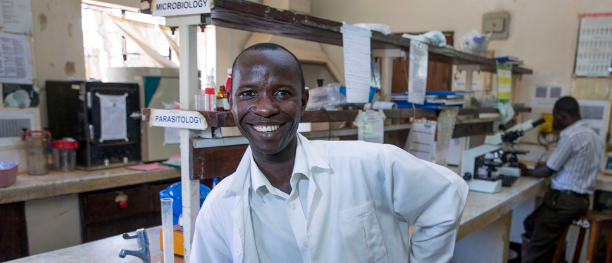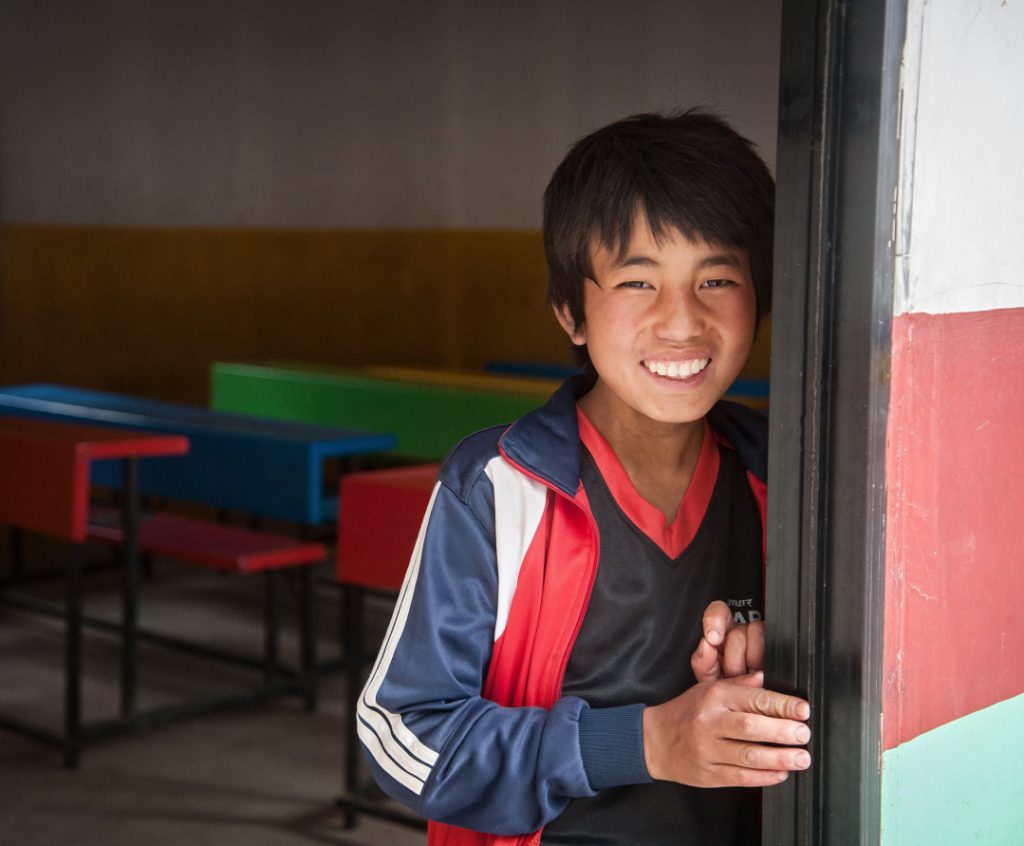It’s 7am in the rural Ugandan village of Kiwoko. Adara Development’s Uganda Country Director, Daniel Kabugo, is already sitting in his office, checking for emails that came in from the US or Australia overnight and preparing for the day ahead.
“I’m good at waking up early, which is bad sometimes,” Daniel laughs. “I go into the office before 7 – I don’t know why I’m rushing to get away from home!”
Outside his office, the Kiwoko community is coming to life. Adults are getting ready for work, children are waking and preparing for school. The sound of chattering outside creeps into Dan’s office.
Dan leads the Adara Group’s work with women and children on the ground in Uganda, with a small but dedicated local team, and works alongside our amazing partner, Kiwoko Hospital. His story is one of both devastation and hope. Dan grew up in Luwero, in a village near Kiwoko, and was a young boy in the 1980’s at the height of the Uganda Civil War. Kiwoko is nestled in the heart of the Nakaseke district, which was the centre of much of the conflict in the war.
“When I was about six years old, I remember very well the Civil War was happening,” Dan says. “My family lived in the bush where families were fighting for their lives. We spent almost four years living in the bush. We went without water, food and clothing.”
He tells us about spending his early years in hunger and in fear, hiding in the face of more horror than can even be described. It is estimated that between 300,000 – 500,000 people were killed and a further 400,000 people were left homeless.
“But thankfully, my family and I survived,” Dan says. “Though many didn’t.”
It was in 1999, just thirteen years after this devastating war, that Adara began its partnership with Kiwoko Hospital.
“In 2001 I joined Kiwoko Hospital as a volunteer, doing x-rays and nursing assistant training,” Dan says. He also volunteered as a social worker for three years with Adara’s programme for children living on the street. But Dan recalls learning more about Adara after spending time as Lab Manager and seeing the incredible neonatal intensive care unit (NICU) built with the support of Adara.
“I remember asking myself, ‘what’s happening here? Who is behind this great work?’ Eventually I came to know it was Adara,” says Dan. After many years as a volunteer and admirer of Adara’s work, he eventually joined as leader of our Uganda programmes in 2014.
Dan loves many parts of his job, but above all he loves seeing the premature babies grow and thrive. Dan tells us about two babies currently in the Kiwoko NICU. The tiny twins were born at a hospital in Kampala and were discharged early due to overcrowding. The parents of these babies decided to travel 80km to Kiwoko Hospital after being told “if you want your babies to survive, bring them to Kiwoko Hospital.”
“This was about 2 to 3 weeks ago,” Dan says. “The babies are doing very well now, and the parents can’t believe what they’re seeing.
“I often ask myself ‘what would happen to these babies if they did not have Adara?’ The answer is they would not survive.”
So, what are Dan’s hopes for the Kiwoko community and Uganda more broadly? “My hope is that we extend these services as we expand out of the Kiwoko catchment area, which we’re already starting to do. We have so much to give,” he says.
“We cannot achieve any of this on our own. There are so many people, many that I don’t know, who are behind this great work. To those contributing finance, words of wisdom, time and guidance – I want to say thank you so much.”


